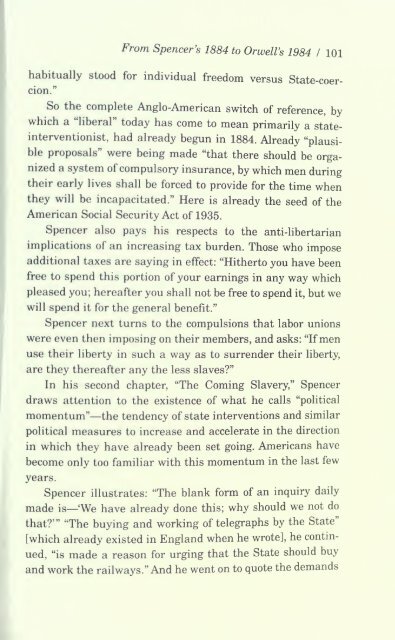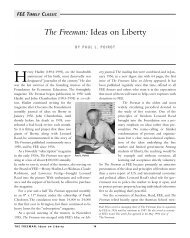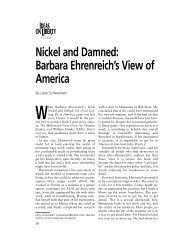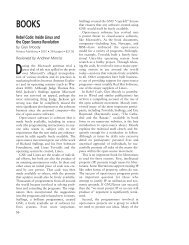Is Politics Insoluble?
Is Politics Insoluble?
Is Politics Insoluble?
Create successful ePaper yourself
Turn your PDF publications into a flip-book with our unique Google optimized e-Paper software.
From Spencer's 1884 to Orwell's 1984 I 101<br />
habitually stood for individual freedom versus State-coer-<br />
cion."<br />
So the complete Anglo-American switch of reference, by<br />
which a "liberar today has come to mean primarily a state-<br />
interventionist, had already begun in 1884. Already "plausi-<br />
ble proposals'" were being made "that there should be orga-<br />
nized a system of compulsory insurance, by which men during<br />
their early lives shall be forced to provide for the time when<br />
they will be incapacitated." Here is already the seed of the<br />
American Social Security Act of 1935.<br />
Spencer also pays his respects to the anti-libertarian<br />
implications of an increasing tax burden. Those who impose<br />
additional taxes are saying in effect: "Hitherto you have been<br />
free to spend this portion of your earnings in any way which<br />
pleased you; hereafter you shall not be free to spend it, but we<br />
will spend it for the general benefit."<br />
Spencer next turns to the compulsions that labor unions<br />
were even then imposing on their members, and asks: "If men<br />
use their liberty in such a way as to surrender their liberty,<br />
are they thereafter any the less slaves?"<br />
In his second chapter, "The Coming Slavery," Spencer<br />
draws attention to the existence of what he calls "political<br />
momentum"— the tendency of state interventions and similar<br />
political measures to increase and accelerate in the direction<br />
in which they have already been set going. Americans have<br />
become only too familiar with this momentum in the last few<br />
years.<br />
Spencer illustrates: "The blank form of an inquiry daily<br />
made is—'We have already done this; why should we not do<br />
that?'" "The buying and working of telegraphs by the State"<br />
[which already existed in England when he wrote], he contin-<br />
ued, "is made a reason for urging that the State should buy<br />
and work the railways." And he went on to quote the demands








